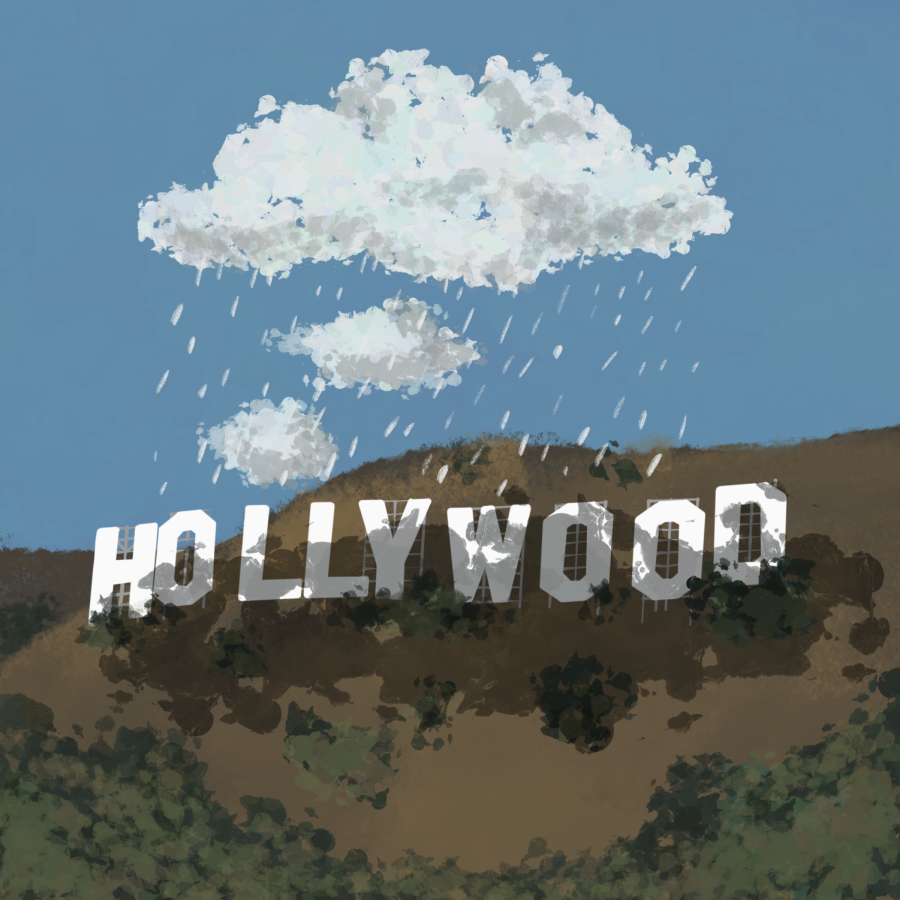The land of stars is burning out
April 25, 2023
For many decades, the Walt Disney Company has been the face of nostalgia in the eyes of many. Several of the characters that shaped our childhoods, and the movies that we have fond memories of, came from Disney. Recently, as it pertains to their role in the film industry, people have begun to identify Disney more so with something else: remakes. Although Disney has tried its hand at remakes before, with a live-action version of “The Jungle Book” in 1994, “101 Dalmations” in 1996 and “Alice In Wonderland” in 2010, many would say that Disney’s current trend of live-action remakes began with “Cinderella” in 2015. Since then, Disney has released a remake of an animated classic nearly every year, and they clearly have no intentions of stopping. This is evident given the fact that they already have more live-action remakes slated for the future, namely “Lilo & Stitch,” which has garnered some controversy regarding the casting. Despite this, more than Disney’s current track record has deterred audiences, it has inspired other companies to follow suit.
This tendency in the film and television industry has recently lent itself to things outside of just remakes; pointless spinoffs, reboots of franchises that have already ended, prequels and sequels to movies that are decades old have begun being green-lit as well. For instance, at the beginning of April, it was announced that a reboot of the “Harry Potter” franchise, in the form of a TV show, was in the works at HBO. Shortly after that, it was also announced that a reboot of the “Twilight” franchise was also in the works. Both of these franchises’ final movies came out barely a decade ago, and their films are so beloved that no reboot could reach the precedent that has already been set, nor could it live up to fans’ expectations. It cannot even be said that the creators of these upcoming reboots want to bank on the nostalgia of the audience, as the people who are fans of these franchises are hardly old enough for that longing for the past to have even taken place. So, why bother? The answer is plain and simple — they are doing it for the money.
These film and TV studios — Disney, HBO and Warner Brothers — are connected to some of the biggest media companies in the world, so there is no reason they should not have the best people to come up with fresh and original ideas rather than peddling remakes and reboots of things that have already been put to screen. This is only the reality because these companies are solely focused on money. They know that putting out new and original content runs the risk of it performing poorly at the box office and causing the studio to lose money. Whereas banking on nostalgia — driving those who grew up with these original stories to the theaters — will undoubtedly make them money. Studios choose to take the latter route, the safe route, because the only thing on their minds is earning money, even if it leaves audiences to witness poor CGI recreations of their favorite animated characters and stories that fail to do the original films justice. Movie studios’ hesitance to release films with new and creative ideas for fear of losing revenue could be the reasoning behind their consistent attempts at cash grabs, but so could their failure to pay those who can create fresh stories worth putting on the big screen.
According to an article from Studio Binder, the Writers Guild of America (WGA) website states that they are “a labor union composed of the thousands of writers who write the content for television shows, movies, news programs, documentaries, animation, and Internet and mobile phones (new media) that keep audiences constantly entertained and informed.” It is the job of these writers to create unique stories that ultimately drive audiences to the theater or to their TV screens, and they’re barred from doing said job when studios are too afraid to take a chance on their scripts. They are also unable to do their jobs when they are not being paid enough. Members of the WGA feel that they are not being paid properly in light of the rise of streaming; according to Vanity Fair, “TV writers (and to some extent movie screenwriters too) feel like they’ve been sidelined while streamers and studios have enjoyed the spoils of the streaming wars.” As a result of this, studios across Hollywood are holding their breath as the organization prepares to go on strike.
However, the strike will only take place if the WGA’s three-year contract with the Alliance of Motion Picture and Television Producers — the trade association that represents Hollywood studios — expires on May 1, and the studios involved fail to come to an agreement with the WGA. From the way it seems, said studios would prefer to rehash stories that they already own, creating reimaginings and spin-offs of them, as opposed to being involved with the WGA at all. While the WGA wants proper compensation, movie studios would rather put out cash grabs that they know will make money and will also allow them to avoid paying these workers fairly. Consequently, if the WGA does end up going on strike, then we may, unfortunately, see this remake trend continue gaining momentum. To avoid this, the only way forward for Hollywood’s studios is to agree to the demands of the WGA and compensate them fairly so that they can continue to create movies that drive audiences to the theater.
Whatever the reason for Hollywood’s incessant desire to put out remakes, reboots and spin-offs that fans rarely ask for, the bottom line is that it will not work forever. Audiences will inevitably get bored of this trend, which is already beginning to become formulaic, and will no longer be happy with simply being spoon-fed remakes of films they had seen as children or spin-offs that lack the wistfulness that the original story held. In a place where some of the greatest feats of storytelling and creativity have been made, it is a shame to see studios now drawing creativity from a well that is running dry. To avoid completely running out of ideas and churning out meaningless content, movie studios have no choice but to take a chance on original stories and be willing to accept the risk that comes with that decision. Additionally, these giants of Hollywood will have to reach an agreement with the individuals that comprise the WGA and pay them fairly in order to have exciting stories that audiences will want to see. Regardless of how the situation is flipped, there will be risks, but the movie industry will soon have to make the choice of which ones they’re willing to take. It’s either that or run the biggest risk of all — watching the land of stars burn out.








